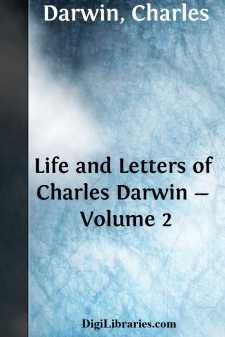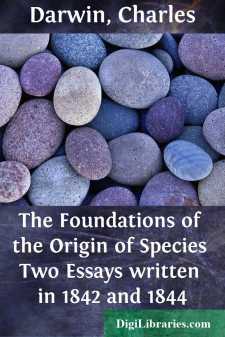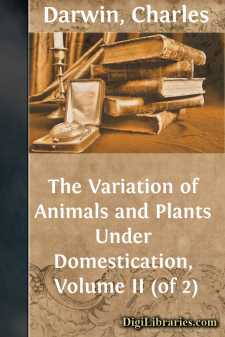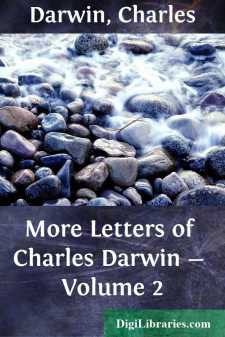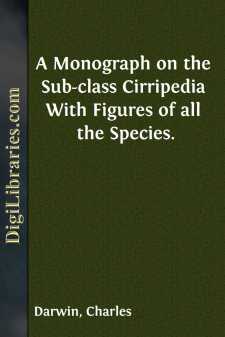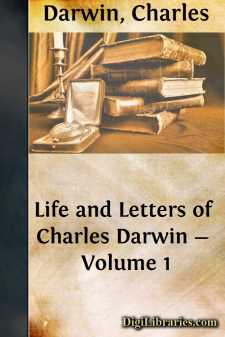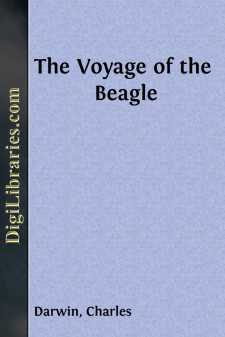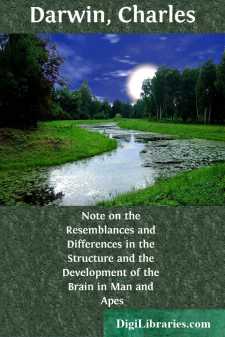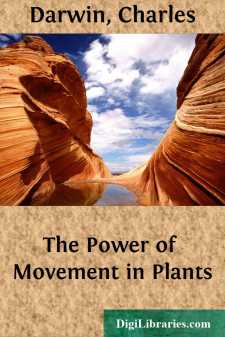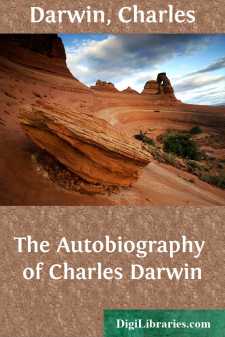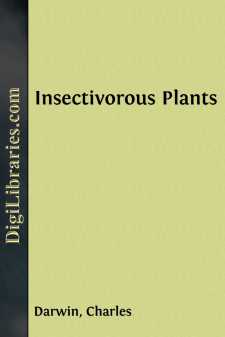Categories
- Antiques & Collectibles 13
- Architecture 36
- Art 48
- Bibles 22
- Biography & Autobiography 813
- Body, Mind & Spirit 142
- Business & Economics 28
- Children's Books 14
- Children's Fiction 11
- Computers 4
- Cooking 94
- Crafts & Hobbies 4
- Drama 346
- Education 46
- Family & Relationships 57
- Fiction 11829
- Games 19
- Gardening 17
- Health & Fitness 34
- History 1377
- House & Home 1
- Humor 147
- Juvenile Fiction 1873
- Juvenile Nonfiction 202
- Language Arts & Disciplines 88
- Law 16
- Literary Collections 686
- Literary Criticism 179
- Mathematics 13
- Medical 41
- Music 40
- Nature 179
- Non-Classifiable 1768
- Performing Arts 7
- Periodicals 1453
- Philosophy 64
- Photography 2
- Poetry 896
- Political Science 203
- Psychology 42
- Reference 154
- Religion 513
- Science 126
- Self-Help 84
- Social Science 81
- Sports & Recreation 34
- Study Aids 3
- Technology & Engineering 59
- Transportation 23
- Travel 463
- True Crime 29
Life and Letters of Charles Darwin - Volume 2
by: Charles Darwin
Categories:
Description:
Excerpt
My dear Lyell,
I send a letter from Asa Gray to show how hotly the battle rages there. Also one from Wallace, very just in his remarks, though too laudatory and too modest, and how admirably free from envy or jealousy. He must be a good fellow. Perhaps I will enclose a letter from Thomson of Calcutta; not that it is much, but Hooker thinks so highly of him…
Henslow informs me that Sedgwick (Sedgwick's address is given somewhat abbreviated in "The Cambridge Chronicle", May 19th, 1860.) and then Professor Clarke [sic] (The late William Clark, Professor of Anatomy, my father seems to have misunderstood his informant. I am assured by Mr. J.W. Clark that his father (Prof. Clark) did not support Sedgwick in the attack.) made a regular and savage onslaught on my book lately at the Cambridge Philosophical Society, but Henslow seems to have defended me well, and maintained that the subject was a legitimate one for investigation. Since then Phillips (John Phillips, M.A., F.R.S., born 1800, died 1874, from the effects of a fall. Professor of Geology at King's College, London, and afterwards at Oxford. He gave the 'Rede' lecture at Cambridge on May 15th, 1860, on 'The Succession of Life on the earth.' The Rede Lecturer is appointed annually by the Vice-Chancellor, and is paid by an endowment left in 1524 by Sir Robert Rede, Lord Chief Justice, in the reign of Henry VIII.) has given lectures at Cambridge on the same subject, but treated it very fairly. How splendidly Asa Gray is fighting the battle. The effect on me of these multiplied attacks is simply to show me that the subject is worth fighting for, and assuredly I will do my best…I hope all the attacks make you keep up your courage, and courage you assuredly will require…
CHARLES DARWIN TO A.R. WALLACE.
Down, May 18th, 1860.
My dear Mr. Wallace,
I received this morning your letter from Amboyna, dated February 16th, containing some remarks and your too high approval of my book. Your letter has pleased me very much, and I most completely agree with you on the parts which are strongest and which are weakest. The imperfection of the Geological Record is, as you say, the weakest of all; but yet I am pleased to find that there are almost more geological converts than of pursuers of other branches of natural science…I think geologists are more easily converted than simple naturalists, because more accustomed to reasoning. Before telling you about the progress of opinion on the subject, you must let me say how I admire the generous manner in which you speak of my book. Most persons would in your position have felt some envy or jealousy. How nobly free you seem to be of this common failing of mankind. But you speak far too modestly of yourself. You would, if you had my leisure, have done the work just as well, perhaps better, than I have done it…
…Agassiz sends me a personal civil message, but incessantly attacks me; but Asa Gray fights like a hero in defence. Lyell keeps as firm as a tower, and this Autumn will publish on the 'Geological History of Man,' and will then declare his conversion, which now is universally known....


